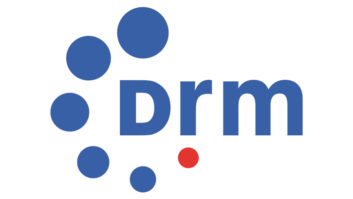Four of the most prominent radio groups in the United States say more research is necessary before the FCC can seriously consider allowing zoned FM broadcasting.
Their filing comes as something of a reality check after several other organizations have expressed general support for the idea. The four groups are worried about a zoned system causing confusion among FM listeners as well as the risk of “self-interference,” which would harm FM’s standing with consumers. GBS has been vocal about the potential benefits to FM broadcasters.
The companies — iHeartMedia, Cumulus, Entercom and Beasley — wrote, “Technologies that are not yet widely proven which could cause interference to the primary signal, as well as confusion among radio listeners as the primary signal is handed off to a localized signal, should not prematurely be adopted as a default standard without more real-world experience gathered with experimental authorizations.”
[Read: Let’s Investigate Geo-Targeting, NAB Tells FCC]
They commented on the petition from GeoBroadcast Solutions, which wants the FCC to allow FM boosters to insert programming different from that carried by the booster’s primary station. This would allow GBS to deploy its ZoneCasting product and let FM broadcasters send unique ads and program content to very localized listeners.
“While this, or similar technologies to provide for zoned broadcasting by FM booster facilities, may ultimately prove valuable,” the groups wrote, the FCC first needs to develop a record of the feasibility of the technology based on further experimental authorizations.
“Automatically authorizing such an unproven technology … is particularly premature given the proponent’s acknowledgment that listeners will experience some degree of ‘self-interference,’ as the booster signal is handed off from the primary programming to the zone programming,” they wrote.
They acknowledged that GBS referenced several studies of its ZoneCasting technology but said there has only been one “real-world” experimental test of the current iteration. “That is a slim basis for the commission to proceed with a Notice of Proposed Rulemaking to change the booster rule to allow automatic use of a barely-tested technology system with known downsides.”
They said that by moving to an NPRM as GBS has requested, the FCC would essentially endorse ZoneCasting “without the need for implementers to report back to the commission on the benefits, problems and/or weaknesses of the system.”
[Read: Stations Groups Push for Translators to Originate Content]
They said third parties should be able to “formulate legitimate comments based on either direct experience with the technology, or grounded in widespread experimentation in varied locations.”
Among their concerns is that the technology might generate confusion as listeners cross transition zones, particularly when driving through alternate programming zones while listening to FM radio in their vehicles. In that case, “Independent parties will need to study whether the end result could be to drive listeners to leave the medium, which could harm all broadcasters seeking to serve listeners via over-the-air FM transmission.”
They asked the FCC to allow more experimental authorizations and reporting, as it has done for other technologies like Single Sideband Suppressed Carrier Modulation, all-digital on AM, Modulation Dependent Carrier Level controls and HD Radio. “The commission also typically conditions continuance of the experimental authority on the lack of objectionable interference.”
The groups concluded by saying that zoned broadcasting “may ultimately be a promising technology” and that with a real-world record, the commission could consider rule changes.







